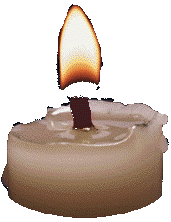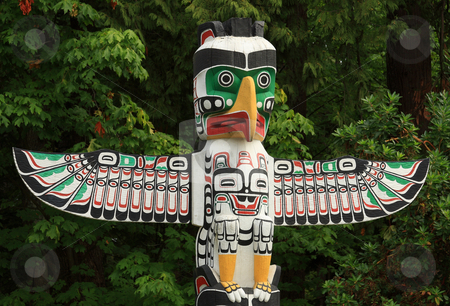|
|
  |
Aboriginal Justice in Canada |
 |
Jock
F. McTavish
Calgary,
Canada
1candle.net
mctavjoc@shaw.ca |
| Canada is at a crossroads respecting the relationship between Canada and
First Nations people. In "A Fair Country", John Ralston Saul
says we are a "Metis Nation", and that the principle characteristics
of Canada are not European values, but aboriginal values. The many present
difficulties give us a fresh opportunity to build a better Canada on those
common values. Naomi Kline says First Nations are vital in our changing
the way we have done coal, oil and gas production. The world needs decisions
that consider the effects upon the 7th generation. |
|
| Truth and Reconciliation |
| Justice Sinclair says the work of reconciliation will take generations, and that it will not just happen but that it must happen. |
|
 |
Truth & Reconciliation Commission Website. Good for latest news, activities, reports, archives. Here is the experience
of 6 years of witness testimony of the injury of the residential school
system. TRC Site Videos
TRC-Calls to Action 20p. TRC-Final Report Summary 388p UN-Declaration on the Rights of Indigenous Peoples. 18p "They Came for the Children 124p" |
 |
Justice Murray Sinclair.
His "cultural genocide" statement (CBC News). Interview with Peter Mansbridge 12m
Speech "Big Thinking - What do we do about the legacy of Indian residential schools? 1hr" Especially note in Q&A section, his comments on the churchs
have done and yet need to do. |
Missing
Children |
An astonishing number of children that left their families never came home.
Many that died at the schools, had missing or incorrect records, many were
buried without records or grave markers, and often their parents were not
notified. The TRC report estimates 6000 died of 150,000 (1 in 25). In the
early days as many as half the children died at the schools! CBC Report. NFB film "We were Children" & NFB Comments blog on film. |
| Genocide |
"Report of the TRC - Cultural Genocide - Democracy Now 21m29s
" Legal Commentary on Genocide
"Residential School Survivors Video 18m35s"
UN Convention on the Prevention and Punishment of the Crime of Genocide |
| Churches |
The United Church - Residential Schools, 1986, 1998 Apologies UCC Commitments,
The Catholic Church - Residential Schools, Apology - 1991 Catholic Initiatives,
The Anglican Church. - Residential Schools, Apology Anglican Reconciliation
Song - John Wort-Hannom, "Man of God 4m13s" |
Kelowna
Accord |
The Kelowna Accord (full text) was ready for implementation when the Government of Canada changed from Liberal to Conservative and the Accord was shelved. With Liberals back, this work will pick up again. Here is their promise Policy Resolution 29 - Implementing the Kelowna Accord. And here is a larger 4p Summary. Here is the Backstory from Canadian Encyclopedia. |
| Other |
The Indian Residential Schools Settlement Areement (2006). A History of Residential Schools - CBC
The CBC report on the TRC Final Report. "Truth and Reconciliation report brings calls for action, not words"
The USA had the same policy of assimilation using Residential Schools.
Some continue. Wikipedia Article. |
|
| Idle No More |
| Idle No More has quickly become one of the largest Indigenous mass movements
in Canadian history – sparking hundreds of teach-ins, rallies, and protests
across Turtle Island and beyond. What began as a series of teach-ins throughout
Saskatchewan to protest impending parliamentary bills that will erode Indigenous
sovereignty and environmental protections, has now changed the social and
political landscape of Canada. |
|
 |
Idle No More Website The Manifesto The Mission Statement: "Idle No More calls on all people
to join in a peaceful revolution, to honour Indigenous sovereignty, and
to protect the land and water"
Ulali Project - a song honouring the 4 founding women of Idle No More: Jessica Gordon,
Sylvia McAdam, Sheelah McLean, Nina Wilson. |
 |
TVO - Agenda : "Idle No More - Protest to Change 54m" Agenda interviews 4 Aboriginal leaders on the general political
circumstances in Canada currently that have led to Idle No More coming
into existence.as a grass-roots phenomena.
Related TVO Blog to this program. |
 |
Pam Palmater. "I am a Mi’kmaw citizen and member of the Eel River Bar First
Nation in northern New Brunswick. I have been a practicing lawyer for 16
years and currently an Associate Professor and the Chair in Indigenous
Governance at Ryerson University."
Her Blog - Indiginous Nationhood. Her Blog at Rabble.ca. Interview at Aljazeera - "Inside Story". |
 |
"25 years after Oka, it's still all about the land." - Gerald Talaiake Alfred, Montreal Gazette, July 2015.
The summer of 1990 showed the country that there were still indigenous
people who thought of themselves as nations, who were politically and culturally
distinct, and who were capable of governing and defending themselves on
their own lands. ... Yet 25 years later, we find ourselves living in an
era defined not by the successful achievement of a new and just relationship
between indigenous and non-indigenous peoples. |
 |
Eight Ways to Take Part in Idle No More
TYEE LIST #30: It's about common goals, not colonial guilt, says one young Heiltsuk woman |
|
| The Missing Women |
| As Amnesty International said in their report (below) "This report
focuses specifically on violence against Indigenous women because of indications
of the scale of such violence in Canada, because the link between racial
discrimination and violence against Indigenous women has not yet been adequately
acknowledged or addressed, and because the victims of this violence are
all too often forgotten." |
|
 |
Highway of Tears Website. With respect and love for the victims of the Highway of Tears, and guided by their communities, we are committed to fulfilling the 33 recommendations from the Highway of Tears Symposium Recommendations Report. We work diligently towards preventing further victimization, supporting the families of the victims, planning for emergencies and supporting the communities’ efforts towards health and vibrancy. |
 |
"Murdered and missing aboriginal women deserve inquiry".CBC - 15 Jan 2015.Article and 11m broadcast.
Site includes the text of the latest report: "Missing and Murdered
Indigenous women in BC" Dec 2014. |
 |
"Missing and Murdered Indigenous Women and Girls" - The Aboriginal Multi-Media Society - AMMSA - Edmonton.
1181 missing women 1980-2012. AMMSA presents here an inclusive collection
of articles and links on the subject. |
 |
"Stolen Sisters - A Human Rights Response to Discrimination and Violence
against Indigenous Women in Canada" An Amesty International Report Oct 2004. 37p "This report examines the role of discrimination in acts of violence carried out against Indigenous women in Canadian towns and cities. This discrimination takes the form both of overt cultural prejudice and of implicit or systemic biases in the policies and actions of government officials and agencies, or of society as a whole." |
 |
"Finding Dawn" National Film Board Documentary 73m 2006. Acclaimed Métis filmmaker Christine
Welsh presents a compelling documentary that puts a human face on a national
tragedy: the murders and disappearances of an estimated 500 Aboriginal
women in Canada over the past 30 years. This is a journey into the dark
heart of Native women's experience in Canada. ... this film illustrates
the deep historical, social and economic factors that contribute to the
epidemic of violence against Native women in this country. |
|
| latest edit - 31 Oct 2015 |
|
|